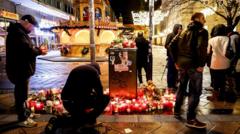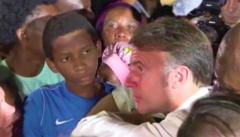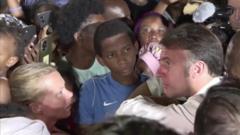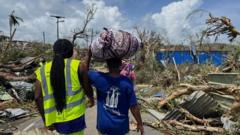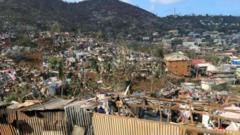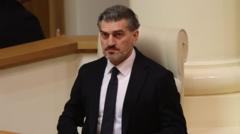Preliminary counts show a polarizing political landscape as voters face critical choices ahead of the upcoming run-off election.
Dramatic Upset in Romania's Presidential Election: Far-Right Candidate Surges Ahead
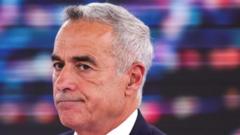
Dramatic Upset in Romania's Presidential Election: Far-Right Candidate Surges Ahead
Unforeseen results reveal Calin Georgescu, a far-right nationalist, unexpectedly leading Romania's presidential race.
In a surprising turn of events in Romania's presidential election, ultranationalist Calin Georgescu has emerged as the frontrunner in the first round, claiming 22% of the votes counted, while Marcel Ciolacu, the prime minister, follows closely with 20%. With 96% of ballots tallied by the Central Electoral Bureau, Georgescu's unexpected rise has created a significant shift in the political narrative, placing him on a trajectory to face Ciolacu in the decisive run-off set for December 8.
Georgescu, a far-right candidate without party affiliation, utilized social media, specifically TikTok, as a centerpiece of his campaign strategy. His platform resonates with a growing section of the Romanian populace, focusing on issues such as national sovereignty and criticism of the European Union and NATO. He argues for an end to what he perceives as Romania’s subservience to these international alliances, including a rejection of logistical support for Ukraine following its invasion by Russia.
The implications of this election are far-reaching for the political fabric of Romania. Voters now face a defining moment: either aligning with Ciolacu, a pro-Europe candidate representing the establishment and continuity of a Western-aligned approach, or supporting Georgescu, who champions nationalist rhetoric. The electorate is fragmented; many are dissatisfied voters from earlier rounds of the election, now confronted with the stark decision between established political norms and a populist alternative.
Campaign issues have largely revolved around the escalating cost of living, with Romania exhibiting one of the highest poverty risks in the EU. Initial exit polls hinted at a different outcome, projecting Ciolacu with a substantial lead while suggesting the center-right Elena Lasconi would secure second place. This early forecast has dramatically shifted, putting Lasconi in third with 18% and George Simion, another nationalist candidate, in fourth.
Although the role of the presidency in Romania is primarily ceremonial, the influence over foreign policy matters is considerable. Voter turnout remained steady at 51%, mirroring the engagement levels of the previous election cycle. The final tallies will soon be available as the count continues, particularly for votes from Bucharest and the Romanian diaspora.

